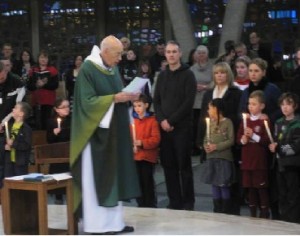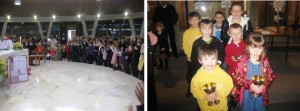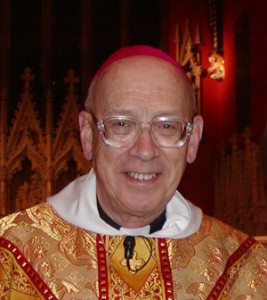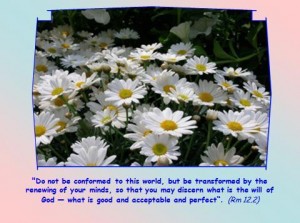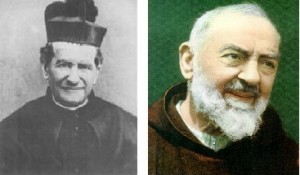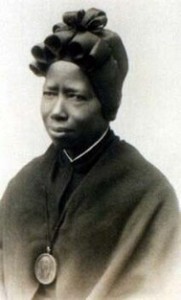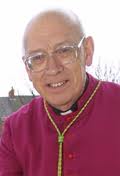A constant theme among the ‘Fathers of the Church’ is that the Psalms of the Old Testament contain within them, all the moods and feelings that a Christian can have, on his, or her, spiritual journey. I have often wondered about this as, day by day, we monks pray, and use the Psalms, in our Divine Office.
Recently, this insight was reflected in my own experience, and, perhaps, it would be useful, briefly, to share what this meant, as for many years, I have not really understood the ‘Fathers of the Church’, on this topic.
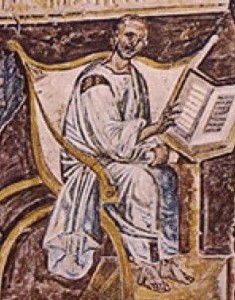 |
St. Augustine of Hippo, died 330 AD, and wrote much on the Psalms
The psalm in question is no 43 (44) and it begins:
We heard with our own ears, O God, our fathers have told us the story.
of the things you did in their days, you yourself, in days long ago.
These lines refer to the Israelites, coming out from their slavery in Egypt, and settling in the Holy Land, after so many adventures. However, they could equally be applied, I think, to the early Church and what happened after Jesus’ Resurrection, with the spread of the Church, from the Holy Land, to all the nations of the world; equally also to the great founders of the Religious Orders, St. Benedict and his adventures in the setting up of monasteries; equally to St. Francis of Assisi, and the Franciscans, St. Dominic and the Dominicans, St. Ignatius and the Jesuits and so on, right up to the present day.
 |
SS. Benedict, Francis and Dominic
These great founders and many others, such as St. Ignatius brought a new impulse of life and light into the Church and World.
 |
St. Ignatius
There are also the different modern charisms in the Church; these include the various new Charismatic Movements in the Church, and the one I know very well, is the ‘Work of Mary’ or the ‘Focolare Movement’, founded by Chiara Lubich, and her companions.
 |
Chiara Lubich (as a Young Lady)
Chiara died in 2007,the movement having spread all over the world, within her life time, and through this, many people have come to understand – in a new way, and with a fresh ‘Spirit’ – the person of Jesus, the Love of God the Father, and the power of the Holy Spirit.
But, to continue with the Psalm:
To plant them you uprooted the nations: to let them spread you laid peoples low.
No sword of their own won the land; no arm of their own brought them victory.
It was your right hand, your arm and the light of your face: for you loved them.
The Psalmist is stating that the outcome, for the Israelites, in the Old Testament, was not because of their own power or might, but was rather the work of God himself. When one reads the accounts of what happened at the ‘founding’ of the Church, of the Religious Orders, or of the ‘Focolare’ Movement, always there is the ‘Finger of God’ at work, rather than the intelligence, wisdom or actions, of the people involved.
This ‘feeling’ that God ordains is also reflected in my own ‘limited’ experience – something that is very ‘present’ to me, in my life. Any personal ideas that I have, about being a good Christian, spreading the Gospel, trying to do good to people, making contact with other Churches – any such actions are, nearly always – not the ideas that God wants me to follow. To get things ‘right’, I have, almost always, to lose my way of thinking, and let God take over. This includes, as far as I am able, remaining always in union with God, and, according to the ‘light’ of each present moment, always to live ‘charity’, with my neighbour. These things are not always easy, but doing one’s best enables the challenges that arise, to be faced and overcome – not so much according to my ideas – but by trying to listen to what God is saying, regarding the particular thing that I am doing. It may help to give a concrete example. Some of my readers may well have been present at, or known about, the ceremonies for the funerals of Fr. Ambrose, 29th June to 2nd July, this year. How the funerals were conducted at Leyland was my responsibility, but not mine alone: many others were involved, and gradually the right patterns emerged, taking into account the feast days, the readings chosen with the help of Fr. Ambrose, and so on. In other words, it was the ‘Finger of God’, at work, again. It was my ‘lot’, as Parish Priest, to attend the other two venues, where funerals took place – a much easier task, I might add!
The psalm then goes in to a lament because all the good work God has done seems to be lost: after some verses it states:
Yet now you have rejected us, disgraced us: you no longer go forth with our armies.
You make us retreat from the foe and our enemies plunder us at will.
You make us like sheep for the slaughter and scatter us among the nations.
You sell your own people for nothing and make no profit by the sale.
You make us the taunt of our neighbours, the laughing stock of all who are near.
Among the nations you make us a byword, among the peoples a thing of derision.
All day long my disgrace is before me: my face is covered with shame
at the sight of the taunter, the scoffer, as the sight of the foe and avenger.
Long before the coming of Jesus there were many times when the Israelites felt rejected by God, most especially, when their enemies triumphed over them, and they were unable to practice their religion. Today, the Church is so very ‘weak’ in the Western world, and, unfortunately this applies to Britain, in particular. Christians are often the butt of all types of ungodly humour, their views are ridiculed and often criticised as being, not politically, correct; those espousing Christianity – as well as other religions – can feel ‘put down’, persecuted, in modern Britain, by an imposed secular spirit, the secularists, all too often, claiming the high moral ground. Christians too, can feel rejected by their fellow Christians, because a large proportion of the ‘Faithful’ rarely ‘darkens the church door’. The puzzlement is that, knowing the people who belong to our parishes – good people in the vast majority – these good people, do not see the need to worship God in Church.
In a way, this situation may be a ‘good’ one for the Church. It means we have to learn to do nothing other than find what God wants, whilst also creating a community of people among whom God is alive – a truly ‘friendly community’ with no hidden agendas – a community of people that knows God, and responds to living the way Jesus lived, as best it can. This community would be ready to serve the people who belong to it, and among whom it exists; it would also help, as best it can, others in the wider population.
So the psalms are a good ‘spring-board’ for reflection.
(By the way, should anyone wish to come, we say the Office of Readings, together, in Church, from Monday to Saturday; the time is, usually 45 minutes prior to morning Mass – 8.15 am, when Mass is at 9.00 am and 7.15 am when Mass is at 8.00 am. Anyone would be very welcome, and, at this ‘Prayer of the Church’, you would gradually get to know the Psalms, that are such an important heritage of the Christian life.)
In e-mailing the blog, ‘Word Press’ tends to distort the original formatting of the document. Readers may wish to visit the website www.stmarysblog.co.uk to read it in its original format.



